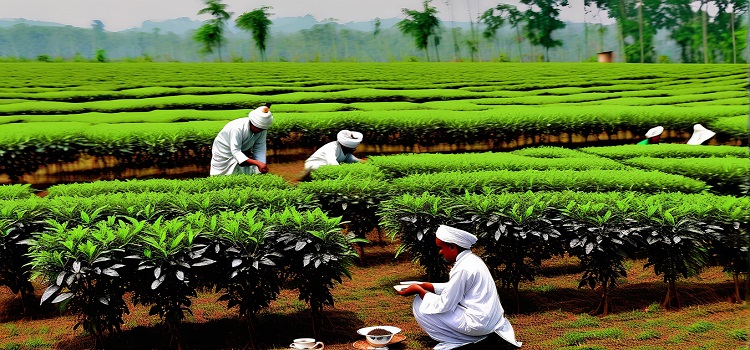In a bold move that marks a significant shift in India’s traditional tea industry, the state of Assam has announced the launch of an Artificial Intelligence (AI) and blockchain-powered digital tea auction platform. Introduced as part of the 2025–26 state budget, this initiative aims to modernize how tea is bought and sold, replacing outdated practices with real-time, transparent, and tamper-proof systems.
Backed by the North East Tea Association (NETA), this initiative seeks to revolutionize the tea trade by introducing automation and decentralization at every stage of the process. The platform has been designed to streamline transactions, eliminate middlemen, and ensure fair pricing — particularly benefiting small growers who often face challenges accessing transparent market data. The government and industry stakeholders see this as a much-needed transformation in a sector that has remained largely unchanged since colonial times.
Phased Rollout to Balance Innovation and Stability
Industry leaders supporting the project, including NETA advisor and former Tea Board of India vice chairman Bidyananda Barkakoty, have encouraged a phased rollout of the platform. They have suggested starting with AI implementation before fully integrating blockchain, in an effort to ensure a smooth transition that does not disrupt existing trade mechanisms. This approach is expected to provide the industry ample time to adapt to the digital shift without causing instability in traditional operations.
The proposed AI tools will focus on automating tea grading, aiming to bring uniformity and reduce human error in quality assessments. Blockchain technology, on the other hand, will provide a secure and immutable digital record of every transaction — ensuring traceability and reducing the potential for fraud. This innovation could transform handwritten records and verbal negotiations into a digital, verifiable ledger, permanently accessible to all stakeholders.
Empowering Small Growers and Boosting Transparency
The digital auction platform is being positioned as a democratizing force within the tea industry. By offering access to real-time pricing and open auction participation, the system is expected to empower small tea growers who have traditionally been at a disadvantage. These producers, who often rely on intermediaries, will now be able to directly engage in the market and receive fair value for their products.
Beyond the auction system, the Assam state budget has introduced several welfare-oriented measures for the tea sector. These include the continuation of the green leaf cess exemption, mobile crèche and toilet facilities for plantation workers, and the organization of health screening camps in tea gardens. These proposals collectively reflect a commitment not only to technological progress but also to the social wellbeing of workers who sustain the tea economy.
Integrating Tourism and Enhancing Global Appeal
In addition to restructuring the trade process, the government is also exploring how the new digital platform could support Assam’s growing tea tourism sector. By using blockchain verification, tourists may soon have the ability to trace the origins of the tea they consume — from cultivation to cup. This transparent storytelling approach could enhance the region’s global reputation for tea and offer unique experiences to visitors interested in the heritage of Indian brews.
Suggestions have also been made to improve domestic marketing efforts, including the idea of appointing a brand ambassador for Assam Tea to strengthen its national presence and appeal. Stakeholders believe that strategic branding and enhanced consumer engagement could complement the technological upgrades, making Assam Tea not just a product but a digitally connected experience.
As Assam prepares to implement this first-of-its-kind AI and blockchain-based system, it appears poised to become a trailblazer in transforming how traditional industries can embrace digital innovation. With state support, industry collaboration, and emerging technologies at its core, the future of Indian tea is being reshaped — not just with better flavour, but with smarter infrastructure.



